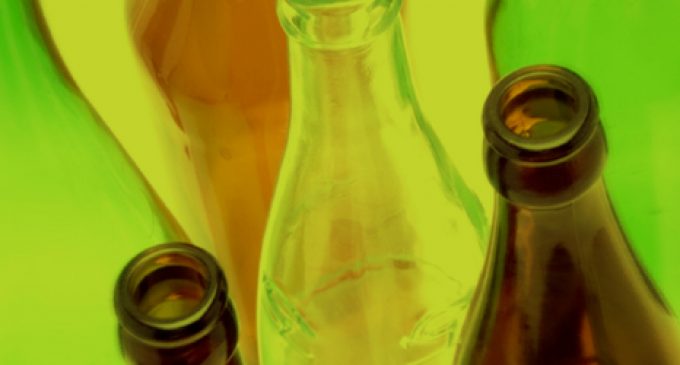Glass Packaging is Top Choice For Environmentally Conscious Consumers

As industries, businesses and politicians make strong commitments to initiatives like the European Green Deal and the UN Sustainable Development Goals, consumers all over Europe are taking more and more steps to reduce their environmental footprint – and latest figures from the glass industry show that awareness of recycling and environmental impact is increasingly driving everyday purchasing decisions.
An independent consumer research survey carried out among more than 10,000 consumers across 13 European countries, commissioned by Friends of Glass and the European Container Glass Federation (FEVE), reveals that people are buying more glass than ever before: half of consumers are now buying more products in glass packaging than three years ago. At the same time, 9 in 10 people would recommend glass as the best packaging material to friends and family; an 11% increase compared to 2016.
These findings are driven by the high recyclability of glass, along with a growing consumer awareness of its environmental credentials. With an extensive network of local recycling facilities and made from recycled glass and raw materials (sand, soda ash, limestone) found in nature, glass is 100% and infinitely recyclable in a local closed loop system, making recycled glass a vital resource for new production. In fact, 2 in 5 consumers actively choose glass over other packaging materials specifically because they see it as more recyclable than any other packaging.
Sustainability matters for consumers
According to the survey, the environmental impact of packaging is seen as an important decision driver in food and beverage purchases, with the majority of consumers (3 in 4) ‘highly concerned’ about littering of food containers and 1 in 3 respondents citing this as their most important consideration. At the same time, 46% of Europeans state that they have significantly decreased their consumption of plastic to prevent littering in the environment.
Glass consistently scores as the most environmentally-friendly packaging material: overwhelmingly, it comes out on top in addressing contamination and environmental issues, particularly when it comes to avoiding food littering (glass rated ‘best in class’ by 43% of respondents), avoiding packaging waste (by 43% of respondents) and addressing climate change (by 48% of respondents).
The findings also reveal that the vast majority of consumers are recycling their glass packaging: 84% of Europeans state that they collect their glass separately for recycling, with 8 in 10 correctly disposing of caps and lids separately. Taking used glass to a local bottle bank is considered the most convenient disposal method across Europe.
A step in the right direction towards a Circular Economy
All these figures mark a step in the right direction towards a Circular Economy in Europe and achieving important sustainability goals, such as a real glass recycling rate of 70% by 2025, and 75% by 2030 per country. To this end, the glass industry is rolling out ‘Close the Glass Loop’ – an industry platform to increase the quantity and quality of recycled glass by establishing a material stewardship programme that will result in more post-consumer collection and bottle-to-bottle recycling. This includes industry and municipal efforts to establish separate collection networks, coupled with communication tools to engage citizens to separate and sort their glass waste for recycling. The results are released on the same day that ‘Close the Glass Loop’ stakeholders are holding an online conference to discuss how to improve collection and recycling of glass throughout the value chain.
In parallel, the industry is making rapid strides in becoming climate neutral: for the first time ever, a large group of European container glass manufacturers have joined forces to build the ‘Furnace of the Future’ – the world’s first large-scale hybrid electric furnace to run on 80% green electricity, set to replace current fossil-fuel energy sources and cut CO2 emissions by 50%. Due to be operational by 2022, the furnace will be able to melt all kinds of glass together with recycled glass – thereby dramatically reducing CO2 emissions.
Michael Delle Selve, Senior Communications Manager of FEVE, comments: “As we prepare to mark another Earth Day, it’s heartening to see that not only is glass recycling on the rise across Europe, with a collection rate of 76%, but that the benefits of glass packaging and recycling are strongly resonating with consumers. Our ambition is to achieve both a collection rate of 90% by 2030 and full recycling of collected glass packaging – so that people don’t just recycle, but recycle more and better. At the end of the day, we all get out what we put in, which is why we’re urging everyone to join us in our effort to collect and recycle every single glass bottle. It’s simple, easy to do and it’ll make a huge impact on our planet and a huge difference for future generations.”
For more information on this European survey and to access the detailed findings, please visit news.friendsofglass.com. Results are also available at a country level.

































